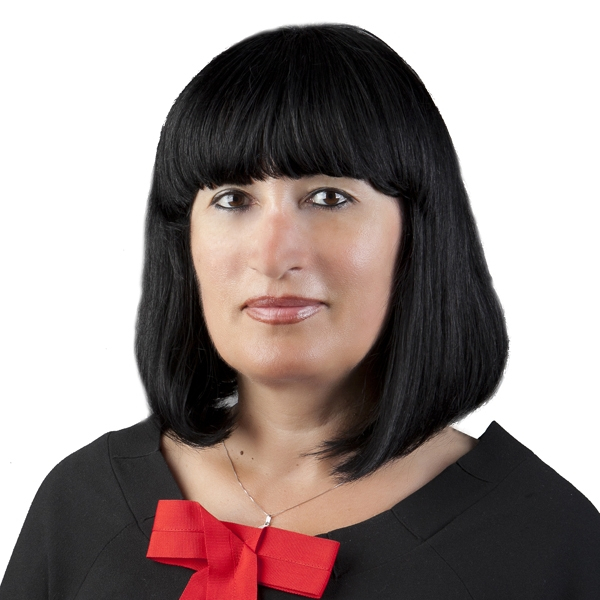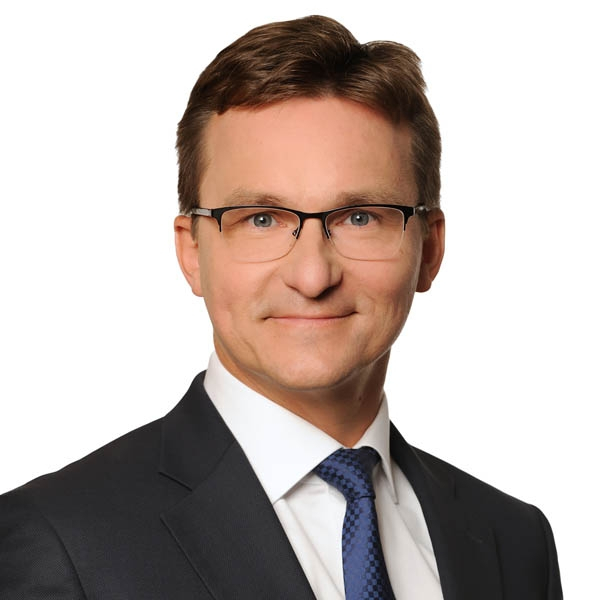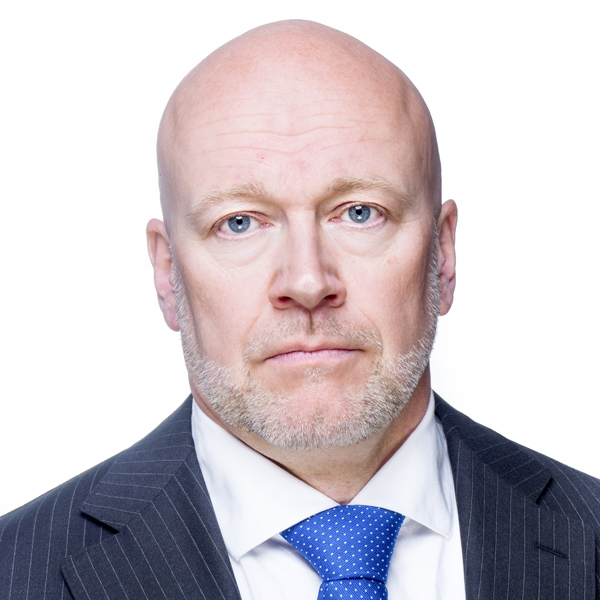Most of those have been on regional stock exchanges, but one of the biggest IPOs of the year was Poland’s parcel locker firm InPost, valued at EUR 9.5bn, which chose to list in Amsterdam—a reminder to international investors that CEE has become a breeding ground for unicorns. Alasdair Steele, CMS partner and head of capital markets, chaired a round table discussion with four colleagues from around Europe, to examine what is driving IPOs and the outlook for 2022.
Alasdair Steele: We’ve seen a record year for IPOs globally, including a surge in IPOs of CEE companies on regional and international markets, though there have been signs of a slowdown in recent months. Irrespective of where companies choose to list, what’s driving the IPO market and what have been some of the landmark deals?
Rafal Zwierz, CMS partner Warsaw: “I think the region has had some big, successful IPOs which has helped create interest. Allegro was Europe’s biggest IPO in 2020 when it listed here in Warsaw and in 2021 InPost listed in Amsterdam, while retailer Pepco Group listed in Warsaw with a EUR 5bn valuation.”
“Of course, unicorns are rare in the region, but it makes other companies realise they can get good valuations by going down this route. An IPO is not for everyone and it very much depends on the type of business and the specific requirements of the sellers. We’re seeing more enter a dual-track process in order to check out the possibility of an IPO premium.”
Reinout Slot, CMS partner Amsterdam: “Companies and shareholders are looking at the valuations and liquidity that an IPO can bring, plus all the benefits of research coverage and a broader investor base. InPost was one of the biggest global listings of the year and Amsterdam has also seen CTP logistics parks from the Czech Republic raise EUR 854m, valuing the group at EUR 5.6bn.”
Charles Howarth, CMS partner London: “Yes, liquidity is very important, along with the opportunity to raise a company’s profile among analysts, investors and the media. For smaller companies in CEE, it might make sense to list on a regional market, but for larger companies or those in attractive sectors, they have the option of international markets such as London. Prague-based Eurowag listed on the LSE in October and Romania’s Blue Air announced it would list in London in 2022.”
Cristina Reichman, CMS partner Bucharest: “The pandemic has accelerated some IPOs and channelled savings to capital markets. There were 21 listings on the main market and AeRO (Multilateral Trading Segment) of the Bucharest Stock Exchange in 2021, exceeding even the most optimistic expectations. The numbers may look small compared to mature markets, but momentum is building on the efforts put into developing the local market and on the recent record hights for capitalisation and dividend yields, which are above the European Union average.”
Alasdair Steele: After a relatively quiet few years for IPOs by CEE companies, reaching out to capital markets is once again an attractive option for businesses large and small. What do they consider when deciding whether to stay local or go global, and what makes your market attractive to them?
Rafal Zwierz: “Warsaw is the largest market in the region and can provide better liquidity than any other local market. Apart from Polish investors, many international financial investors are active on the Polish market, including foreign funds and sovereign funds. InPost’s strategy is built on international expansion, so there was a logic in going to Amsterdam, but for most Polish companies, London or Amsterdam is not an option as they want to stay close to their main investor base.”
“There is comfort to using your local market, working in your own language, dealing with regulators you understand and advisers you know. It’s not just a matter of fees and taxes. Also, for those outside the eurozone, listing in euros means the share price may reflect currency fluctuations rather than business performance.”
Cristina Reichman: “There are a lot of nuances here and it depends on the size of the company and the sector, but for small and medium sized companies, Bucharest is attractive and competitive, and there is the option of the main market or the junior AeRO market. The Bucharest Stock Exchange was promoted to a FTSE Russell secondary emerging market in 2019, which has put it on a wider radar for investors.”
“The hard costs of listing are low compared to, say, London, and there are also favourable soft costs such as familiarity and precedent set by other companies. For larger companies, the success of UiPath (an indigenous Romanian company) with its New York listing in spring 2021, has opened the door to the higher league and others will follow, such as Bitdefender which has announced plans to list in the US.”
Alasdair Steele: Perhaps my colleagues in London and Amsterdam could suggest why CEE companies should look to their markets, though I don’t expect either to recommend the other as the better place to list!
Charles Howarth: “I think for larger companies in CEE looking beyond their regional jurisdictions, London and Amsterdam are the two obvious choices in Europe, but for large companies and those in tech and healthcare, the US has made itself an international leader.”
“London has the regulatory and investor base that will help them to grow their businesses by being listed here. There is far more liquidity in the UK than any other market in Europe. We have the expertise, a large banking community, analysts who can understand, and research companies.”
Reinout Slot: “I would argue that factors in favour of Amsterdam are that it is the largest market by volume of trading since Brexit. It has the highest liquidity in the EU. More so than some of its neighbours, Amsterdam is a very international market and has a high proportion of non-domestic companies. Amsterdam also is the largest exchange outside of the US for listing SPACs (special purpose acquisition companies).”
Alasdair Steele: Without wishing to open up old wounds, in what way do you think Brexit has changed things and does it mean London will lose out to Amsterdam?
Reinout Slot: “I don’t think London will lose out; it is a huge stock exchange and will continue to be so. But the fact that London is now outside the EU may be a consideration when people are deciding where to list. There hasn’t been a concerted effort by Amsterdam to grow business since Brexit, but it is happening. In the end it’s not about marketing, it’s about how beneficial a jurisdiction or a market is for the purposes of the company that is listing.”
Charles Howarth: “For better or worse, we’re now outside the EU and have the opportunity and freedom to make our own rules and become a beacon that attracts more international companies and helps them grow. There are various consultations going on in the UK about what reforms are needed, for instance to realign the regulatory regime so that any obstacles created by Brexit are removed. Amsterdam’s acceleration has been and continues to be impressive, but I see the US markets as the strongest competition for both London and Amsterdam.”
Alasdair Steele: Technology and healthcare have been thrust into the limelight by the pandemic. Has this been reflected in IPO markets and what does it mean to more traditional sectors?
Cristina Reichman: “The spectrum has widened in Bucharest. The three main market listings in 2021 were Aquila, in consumer goods distribution; One United Properties, one of the largest developers of residential, mixed-use and office real estate; and TTS naval transport, while AeRO is a diverse mix, from IT to agricultural. The technology and start-ups sector in Romania is packed with companies capitalising on growing demand. There are many fintechs that have scaled up and are in the international league now, and may choose to go to markets where there are specialist investors and analysts.”
Reinout Slot: “Amsterdam has had a fair number of tech companies listing. People tend to want to list where similar companies are listed. The Netherlands is traditionally a trading nation and there is less of an industrial background, and that’s reflected in listings in Amsterdam. Maybe we’re more open to fintech in particular because there is less of a traditional banking base to protect.”
Rafal Zwierz: “There’s a lot of interest and activity in gaming, renewables, pharmaceuticals, biotechnologies and e-commerce. The way these businesses operate is similar everywhere in the world and investors understand them, so it doesn’t matter where they are listed, and because these sectors are hot around the world, they are more likely to get a higher valuation as an IPO than a private transaction.”
Charles Howarth: “The problem for London and European markets is that the US has become the dominant market for tech and healthcare. It’s an area we have got to get on top of, otherwise companies from the UK and the rest of Europe will look across the Atlantic to do their IPOs. London continues to have world-beating expertise in traditional areas such as insurance, banking, mining and oil and gas. Energy and minerals need to adapt to help the world meet sustainability requirements, for instance in the production of lithium for batteries, and London is the place to turn to.”
Alasdair Steele: Global equity markets enjoyed a rebound in 2021, which was reflected in IPO activity, tempered towards the end of the year by uncertainty around Covid-19 and the prospects for recovery and inflation. Do you think the enthusiasm for IPOs is sustainable in 2022?
Reinout Slot: “I think the outlook for Amsterdam is probably better now than at any time in the past 20 years. For the first time in a while, we are seeing some very large non-Dutch companies coming to Amsterdam. The market is growing in absolute and relative terms, so all the signs are positive in that sense, and even though markets expect the tapering to unwind and interest rates to go up, the underlying drivers for IPOs are still there.”
Cristina Reichman: “There is a good pipeline of Romanian companies and the Bucharest Stock Exchange has moved into a more mature stage, so I can see the momentum continuing to build. The attractiveness of Bucharest has increased for investors and companies. It is expected that the process of listing state-owned companies will be resumed, in keeping with the commitments in the Romanian Recovery and Resilience Plan. For Romania-founded companies, such as Bitdefender, that are global players, it will be more natural to look to raise capital abroad.”
Charles Howarth: “There are many grounds for optimism. The Treasury and the FCA are taking the opportunity at last to adapt and change quickly. Standing outside the EU now gives us advantages in terms of ability to adjust regulations quickly and we must embrace that. We see no reason why more CEE companies shouldn’t see London as the international market of choice for listing.”
Rafal Zwierz: “There is a strong pipeline of companies looking to IPO in Poland and we see a lot of action. We hope it’s going to be a sustainable trend, but certainly it is a big change compared to the last few years with significantly lower activity. Investors still have a lot of trust in Poland and it will be interesting to see how they react to recent increases in inflation.”
Alasdair Steele: After the past year, IPOs are firmly back on the agenda. It’s not an option for every company and whether they list on a domestic or an international market depends on individual circumstances. But the success of Allegro in 2019 and UiPath and InPost in 2021 has certainly energised markets and served as a reminder to stock exchanges that they can’t just sit and wait for companies to come to them. If they want to be seen as a place to IPO, they have to go out and win business.














Social Media cookies collect information about you sharing information from our website via social media tools, or analytics to understand your browsing between social media tools or our Social Media campaigns and our own websites. We do this to optimise the mix of channels to provide you with our content. Details concerning the tools in use are in our privacy policy.